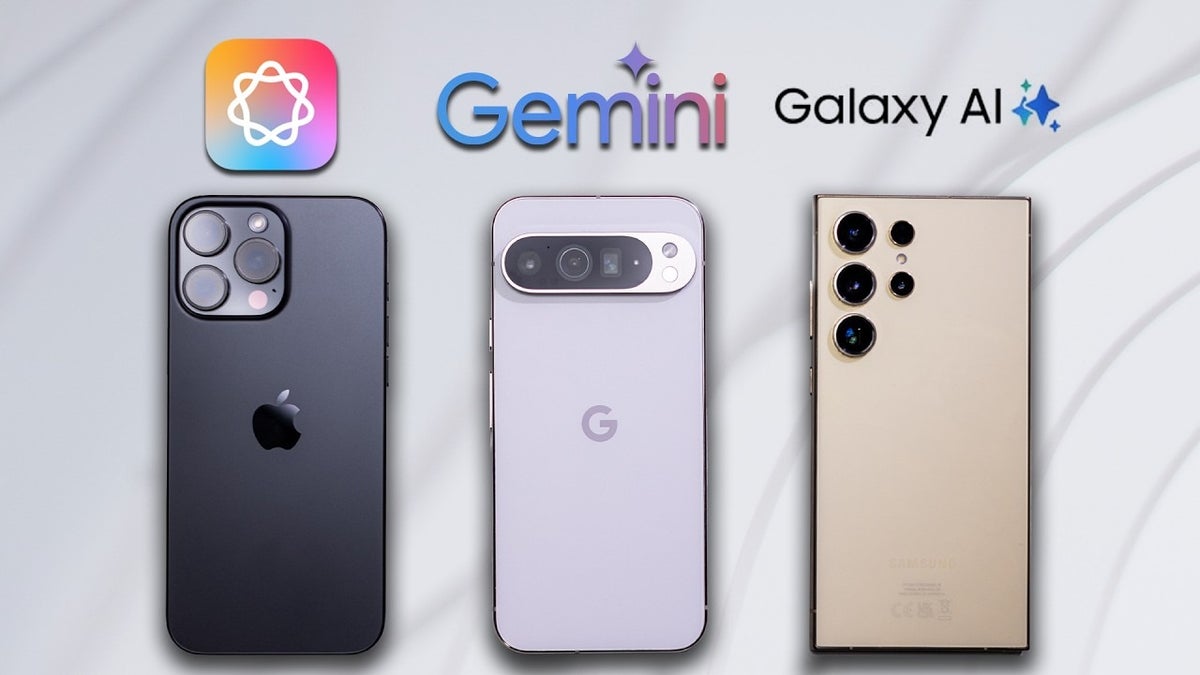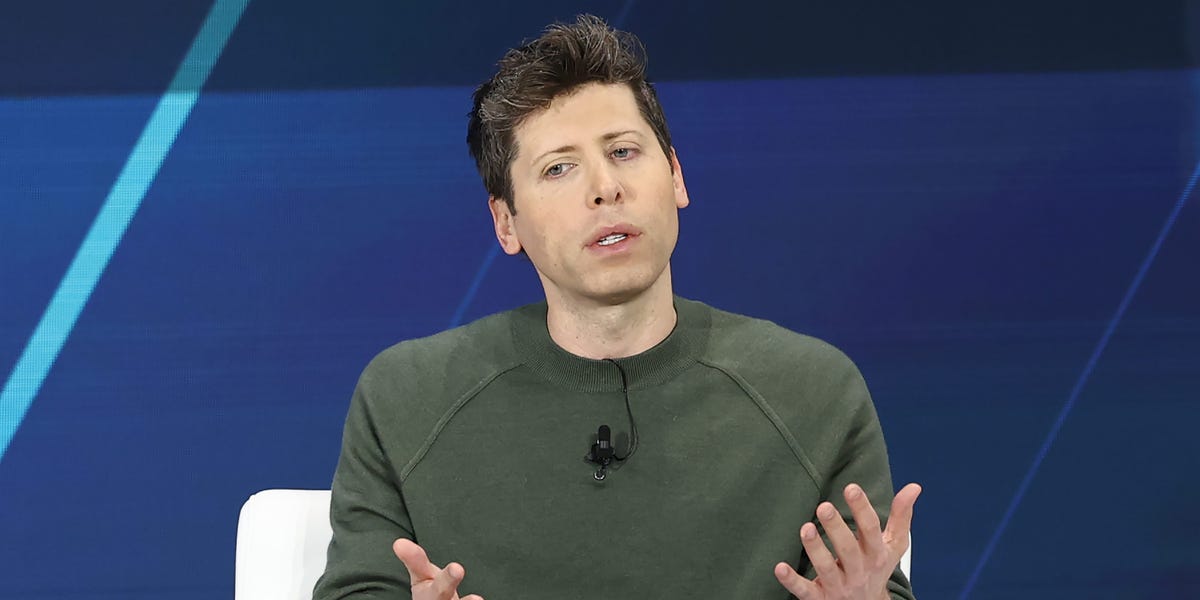The last two years have been a real adventure in the world of technology. Not least because AI has become such a huge buzzword that everyone wants to jump on this particular bandwagon. Google has announced a few different AI projects – from Bard to DeepMind to Gemini (it’s all unified under the Gemini name now, thankfully), Samsung has released its
.
With all these manufacturers and developers throwing AI features at us, most of which cover the same area, it quickly becomes a confusing mess. Which does what, which has exclusive features, who does it best?
Let’s step back, take a deep breath, and examine all the currently known features of Apple’s AI, Google’s Gemini, and Galaxy AI.
We’ll also include the promised features, as Apple is still rolling out the full version. Apple Intelligence feature set. We thought it was best to integrate those as well, so we can get a clearer idea of which platform is for what, even if it’s not quite there yet.
Google Pixel and Galaxy phones offer live translation during a call between some of the most common languages. It’s not perfect, but it can be useful in certain scenarios.
Smart response
Apple AI – Yes | Gemini – Yes | Galaxy AI – Partial
Language models can fairly accurately interpret the subject of a message you received and then generate a more elaborate response for you. Apple AI and Gemini do this via email and SMS, Galaxy AI Currently this only happens in the Messages (texts) app.
Compose and rewrite text
Apple AI – Yes | Gemini – Yes | Galaxy AI – Yes
You can ask the AI to carefully organize your text, compose entire paragraphs, or change the tone and style of a piece of text. Apple’s AI can also use ChatGPT for longer, more elaborate writing. Anyway, all three wizards here cover this functionality.
Image-related AI features
Generate images
Apple AI – Yes | Gemini – Yes | Galaxy AI – Partial
Apple has its own Image Playground, which generates animation-style images that are generally not very diverse or usable. But, again, with ChatGPT built in iOS 18, you can simply ask it to generate more realistic images, or in different styles.
It’s worth noting that Apple also offers the new “Genmoji”, which will specifically generate emoji-style images based on your image prompts. These are… met with a lukewarm reception, because they kind of defeat the purpose of expressing yourself with emoji – the fun lies in their limited number and the attempt to create different combinations and meanings.
Google’s Pixel Studio is also a bit better at creating images from scratch, but it’s still a bit limited – in particular, it will refuse to create human figures. Google also has the Emoji Lab, which will mix the characteristics of two emoji into one to create a sort of Franken-moji. These are a bit more fun than Genmoji.
Samsung’s AI can currently generate images from your own drawings, but does not currently have the functionality to create them from text prompts or emoji generators.
Visual search
Apple AI – Yes | Gemini – Yes | Galaxy AI – Yes
Apple AI has the new Visual Intelligence feature: press and hold the camera control button, then you can use the viewfinder to ask ChatGPT or Google what you’re looking at. Google and Samsung phones have Gemini with camera access, which works much like visual intelligence. There’s also Circle to Search, where you can perform an image search on whatever you currently have on your screen.
Magic eraser
Apple AI – Yes | Gemini – Yes | Galaxy AI – Yes
This existed on Samsung and Google phones long before it was attributed to AI. Magic Eraser is a “generative eraser” tool, meaning it will remove any object from a photo and attempt to generate the missing background, based on the context around it. Apple now has the Clean Up tool in Photos, which does much the same thing. You could say that Apple’s tool is a little more “AI”, since it will immediately identify and suggest objects that you may want to remove from a photo.
Automatically crop the subject of a photo
Apple AI – Yes | Gemini – No | Galaxy AI – Yes
Again, this existed before the AI craze. Essentially, you can long-press on an object in a photo, and the software will “identify” its boundaries and allow it to “lift” it out of the photo. Then drag it to paste it into another application or generate a copy of this image with a transparent background. It’s a very useful tool for creating YouTube thumbnails, and it’s been available on iPhones and Galaxies for a few years now.
Pixel Exclusive: Photo Unblur, Reimagine, Add me, Magic Editor
Apple AI – no | Gemini – yes | Galaxy AI – No
Google has been working on image-related tricks for several years. THE Remove blur from photos The feature will analyze and remove blur from any image in Photos. Even if you uploaded an old camera photo!
Magic Editor allows you to rotate and change the positioning of a photo. If you end up going outside the lines of the original photo, Magic Editor will try to generate more background, depending on the image.
Reimagine can change entire subjects in a photo based on a text prompt. Like “Make the grass yellow” or “Make the sky cloudy”.
Add me is a cool way to take a group photo without needing outside help. One person takes a photo of the group, then someone else steps in and asks the original photographer to take their place in the frame. The AI will stitch image 2 with image 1 to make it look like the whole group was together at the same time.
Some of them may come to others Android phones via a Photos update – Unblur is available, Magic Editor is being tested, and Reimagine may also be pushed at some point. But Add me, for example, is specifically a Pixel Camera feature.
General AI Features
Contextual understanding and multi-layered commands
Google’s Gemini is the leader here. The Gemini Live conversational model is currently available, and in general, Gemini’s capabilities are comparable to ChatGPT. You can ask Google Assistant to answer questions on the web, think or have a conversation with you, or access limited information in apps and your account.
Apple’s Siri is set to get a major overhaul in March, where it will not only be able to follow conversations but also perform complex, multi-layered tasks. Like extracting information from one application to apply it to a query for another application. At the moment we have access to CharGPT, which is quite deep and elaborate, directly through Siri.
Bixby is currently lagging behind, but from what we know One UI 7, which is expected to launch with the Galaxy S25, Samsung’s assistant should become much smarter. Apparently, it will be powered by Samsung’s LLM model – Gauss – and Google’s Gemini. We’ll see how this plays out, but the promises of a conversational style and multi-app operations are huge.
Exclusive AI Features Now
Apple Intelligence
Apple has focused on overhauling the way notifications are sent using AI. On the one hand, the most “important” messages will automatically be placed at the top of your feed. Second, AI will be used to summarize long messages or chat chains, so you can get a better idea of what’s going on at a glance.
At least that’s the general idea. The execution isn’t quite there yet, with some summaries quite vague or funny.
The same treatment has been applied to the Email app, where a new Priority tab will be filtered and summarized by the AI.
Google Gemini
Google has taken some unique steps with the implementation of AI. One is the new Screenshots app: all the screenshots you take will be collected here, and the AI image recognition will put some tags on them. So you can easily search for it later. Like “Plumbing Service Phone Number” or “Show Poster with Dates on It.”
The other unique feature is none other than the Weather app. In the same spirit as summarizing a long article, Gemini will give you a short summary of the weather forecast at the top. Yes, the level of usefulness here is questionable.
Then we have a host of other smart features from Google, which were released long before everything had “AI” in it, but which definitely fall under the umbrella:
- Call screening
- Direct my call
- Hold for me
- Clear call
- Book with Google
Samsung Galaxy AI
Samsung has started 2024 strong, with a host of features in Galaxy AI. However, at the end of the year, it definitely lacks any unique or distinct features. Of course, this should change in early 2025: we’ll see if Samsung manages to concoct something new and different, which the competition doesn’t yet have.









